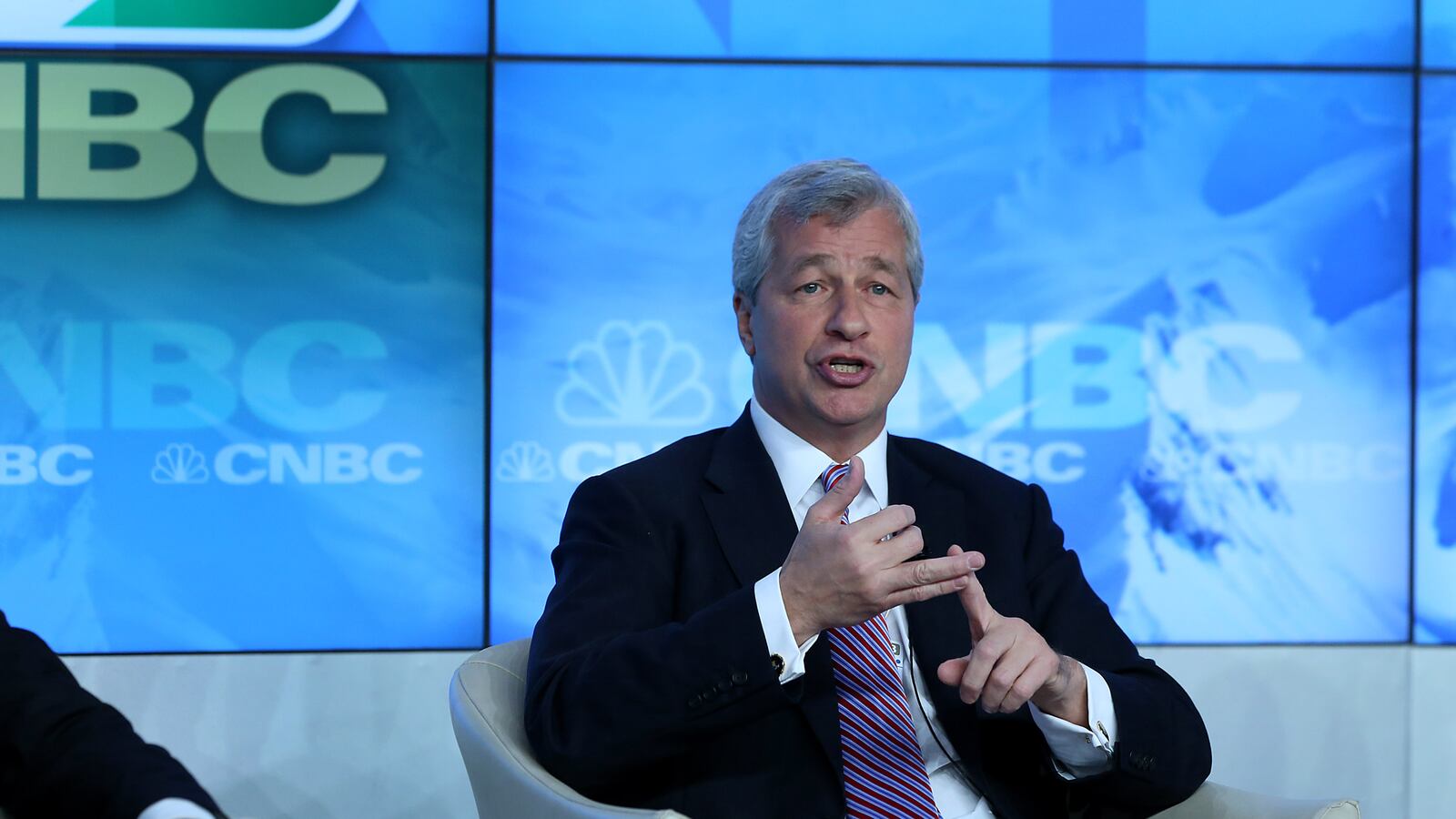The U.S. has a relatively muted presence at this year’s World Economic Forum in Davos, Switzerland. That’s largely because we’re in a time of transition. Davos mainstay Timothy Geithner is on his way out, and Jack Lew, Obama’s pick to replace Geithner as treasury secretary, has yet to be confirmed. In 2008, then-Secretary of State Condeleezza Rice set the tone with a keynote address. The current secretary of state, Hillary Clinton, is stepping down, and anyway, is busy this week with Benghazi hearings back home. Google isn’t throwing its traditional Saturday night bash, nor has it sent its top three execs, known by the mononyms Eric, Larry, and Sergei, and Facebook’s Mark Zuckerberg isn’t in the program. The big U.S. banks that typically swarm the place and host high-profile events are here in much smaller numbers and keeping a much lower profile.

Not everyone agrees with my assessment. One American diplomat, overhearing me bemoan the lack of a U.S. presence to a group of journalists in the main lounge of the Congress Center—a kind of Star Wars bar scene for the international economy—piped in with a gruff “Excuse me.” There were plenty of important officials here, including Federal Trade Commission Chairman John Leibowitz, Undersecretary of State Robert Hormats, Federal Communications Commission Chairman Julius Genachowski, and Housing Secretary Sean Donovan.
But these people aren’t boldface names, even in Washington.
Even if it is a transition time in the U.S., it doesn’t make sense to me that the U.S. should take a back seat at Davos, especially considering the theme for this year’s gathering is “Dynamic Resilience.” I’d argue that in the developed world no economy has done a better job of reinvention and reconstruction than the U.S. in the last few years. But Americans aren’t exactly beating their chests about it. The country has avoided the deep damage of self-imposed austerity that Europe has. It pays low interest rates on its debt. It largely processed the housing and banking failure, and has, all the while, developed new energy sources. It is growing at about a 2.4 percent annual rate this quarter, according to Macroeconomic Advisers. By contemporary terms, that qualifies as rapid growth. “I think you’ve passed the height of your political madness,” said Martin Wolf of the Financial Times, dean of the economic columnists.
Economically, in other words, the U.S. has recovered some of its aggression. That was on display Wednesday morning in Davos, when JPMorgan Chase CEO Jamie Dimon, America’s leading banker (for better or worse) came out firing. At a panel, he defended his bank, the U.S. banking system, and America’s actions generally. He apologized to the company’s shareholders for the losses racked up by a trader now known as the London Whale, but not for the complexity of the business. "Businesses can be opaque. They are complex. You don't know how aircraft engines work, either," he said—the “you” referring to policymakers. (True, but aircraft engines don’t explode en masse and threaten the global economy. And when failures do occur, enginemakers don’t get bailed out by the government.) Speaking of aggression, after the session, I saw Dimon holding court in a lounge, standing just a few feet away from Dan Loeb, the edgy hedge-fund investor who has been shaking things up at Yahoo!, Morgan Stanley, and Herbalife.
But another Dimon quote that got less attention was more apropos. Dimon spoke glowingly of America’s much-maligned central bank. "I think they saved the system,” he said, nothing that the Federal Reserve bailed out the global financial system, not just America’s. Indeed, it struck me that good monetary policy that benefits others has been a form of a U.S. export. The way Brazil dispatches soccer players to leagues around the world, the U.S. loans out monetary experts to other countries. In the space of a minute in the Congress Center, I saw Adam Posen, the American economist who, until recently, served on the Bank of England’s monetary policy committee, where he was a rare voice for stimulus amid stagnation, and Stanley Fischer, the former MIT economist who is the Governor of the Bank of Israel, who has helped steer that turbulent nation’s economy through relatively calm waters.

Even in an area where it has historically lagged—energy and climate change—the U.S. is also leading through policy. America may be allergic to a carbon tax or a cap-and-trade system, but one of the quiet themes here has been the revolution in energy production and use. David Crane, CEO of the electricity company NRG, cited a quiet revolution. The ability to exploit huge shale formations to produce natural gas, combined with rapid increase in renewals, has drastically changed the mix. “Natural gas-fired generation is in the process of wiping out coal as the backbone of the baseload power system in the U.S.,” he said. At the same time, amid all the conversations and sessions about sustainability, Europe and Asia are building more coal-fired generation.
The U.S. is actually holding up its end of the bargain quite well, and assuming the yoke of economic leadership. Davos has historically been a chance for emerging markets to stage coming-out parties—the Persian Gulf emirates one year, Turkey the next, India, China. But many of the high-fliers have fallen by the wayside. In 2013, the U.S., carrying a smaller stick and sending few bankers, is leading the way.





